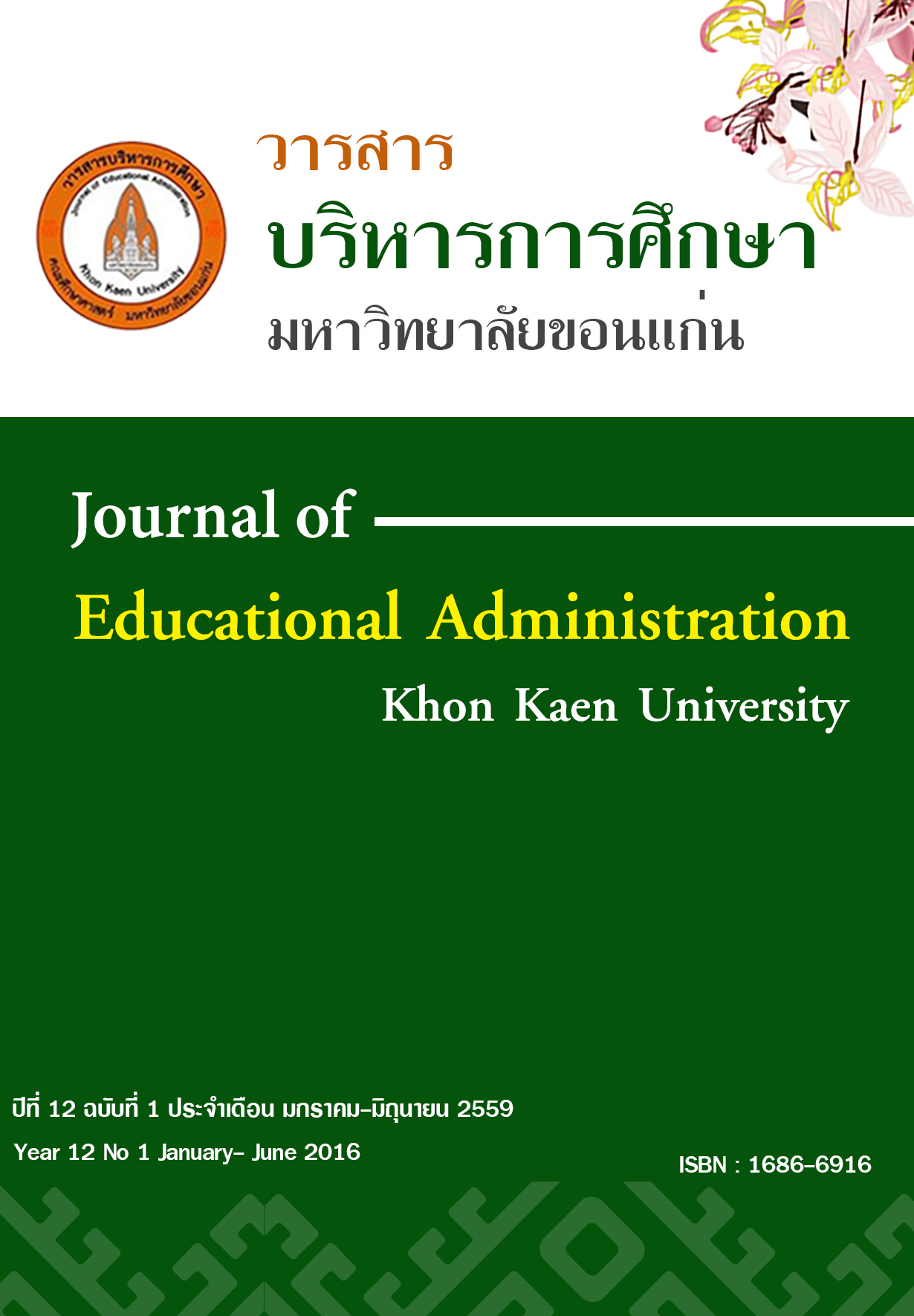แนวคิดและทฤษฎีพื้นฐานการเป็นผู้นำของผู้บริหารสถานศึกษาในศตวรรษที่ 21 Fundamental Concepts and Theories for being Leaders of School Administrators in the 21st century
Main Article Content
Abstract
ผู้บริหารสถานศึกษายุคใหม่ในศตวรรษที่ 21 ในฐานะเป็นผู้นำที่มีอิทธิพลต่อบุคลากรภายในมีบทบาทต่อการกำหนดทิศทาง นโยบาย และนำพาสถานศึกษาไปสู่ความสำเร็จต้องมีความพร้อมในด้านคุณลักษณะที่โดดเด่น กล่าวคือมีทักษะทางปัญญาสูง เป็นนักบริหารมืออาชีพ มีจิตเชิงสร้างสรรค์ มีเจตคติที่ดี และเป็นบุคคลที่มีวิสัยทัศน์ มีความคาดหวังสูงที่มุ่งสร้างความสําเร็จของงาน ตลอดจนพัฒนาสถานศึกษาให้เป็นองค์กรแห่งการเรียนรู้ และสร้างสถานศึกษาให้เป็นองค์กรนวัตกรรมยุคใหม่
นอกจากนี้ ผู้บริหารสถานศึกษายุคใหม่ต้องมีบทบาทที่สำคัญคือ ต้องปรับเปลี่ยนบทบาทจากการเป็นผู้ควบคุมมาเป็นผู้นำที่วางแนวทางการปฏิบัติงานของบุคลากร มีความเข้าใจในความหลากหลายทางวัฒนธรรมและการบริหารจัดการเชิงรุก ยึดหลักการมีส่วนร่วมปรับองค์กรให้เป็นองค์การขนาดเล็กและมีโครงสร้างแนวราบ และเสริมสร้างการมีหุ้นส่วนทางการศึกษาดังนั้นผู้นำองค์กรยุคใหม่ในศตวรรษที่ 21 จึงต้องมีการแสวงหาความรู้ทั้ง เชิงทฤษฏี การปฏิบัติและประสบการณ์
School administrators of new age in the 21st century—as leaders influencing internal personnel, playing a critical role in determining directions and policy, and taking the institution to achievement—must get ready to have the outstanding characteristics, including advanced cognitive skills, professional principalship, creative mind, and good attitudes. They must also possess visions and high expectations seeking for the success, developing the institution as a learning organization, and building the institution as a modern innovative organization.
In addition, the administrators of new age must play a significant role in changing from being a controller to being a leader who plans the ways of practice for personnel. They must understand cultural diversity and proactive management, holding the principle of participation. The administrators must adjust the organization to make it small with a flat structure and they must promote the educational partnership. Therefore, the organization leaders of new age in the 21st century must seek for theoretical, practical, and experiential knowledge.


